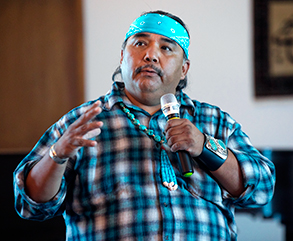The Bahá’í Faith presents a robust philosophical framework, with the Oneness of Humanity serving as one of its most foundational concepts. This principle underscores the interconnectedness of all individuals, irrespective of geographical, ethnic, or cultural distinctions. The teachings illustrate that unity is not merely an ideal but a necessary reality for the advancement of civilization. This exploration delineates the multifaceted dimensions of this doctrine—its historical origins, theological implications, practical applications, and transformative potential in contemporary society.
Historically, the Oneness of Humanity is rooted in the very genesis of the Bahá’í Faith, emerging in the mid-19th century amidst societal upheaval and colonialism. The Bahá’í founder, Bahá’u’lláh, articulated this principle in response to the pervasive divisions that characterized his era. His writings emphasize that humanity constitutes a singular family, with all individuals deserving dignity and respect. This ideal counteracts the pernicious forces of racism, nationalism, and sectarianism, which have historically precipitated conflict and alienation.
Theologically, the Oneness of Humanity is intertwined with the Bahá’í understanding of the nature of God and the purpose of creation. Bahá’ís posit that all people are created in the image of God, thereby endowing every individual with intrinsic value. This belief challenges us to look beyond superficial differences and recognize the shared spirit that binds us together. In this light, the concept of oneness transcends mere tolerance; it invites an active engagement in promoting harmony and solidarity.
One of the practical applications of this teaching is the establishment of local and global communities that genuinely reflect this unity. Bahá’ís endeavor to create spaces where diverse individuals can come together to collaborate on issues ranging from social justice to environmental sustainability. This requires a commitment to dialogue and understanding, coupled with a recognition that each person’s contribution is vital to the collective well-being. Through community building, Bahá’ís exemplify how the Oneness of Humanity can manifest in tangible ways, fostering relationships that challenge the prevailing narrative of division.
Moreover, the principle of Oneness of Humanity extends its reach into the realm of education. The Bahá’í community places significant emphasis on educational initiatives that aim to promote an understanding of this doctrine among youth and adults alike. Educational programs are designed to cultivate an appreciation for diversity, equipping individuals with the tools to engage deeply with complex social issues. Curricula often incorporate themes of tolerance, cooperation, and empathy, thereby fostering a generation that is informed and committed to creating a more unified world.
The Oneness of Humanity also speaks profoundly to the aspirations and struggles inherent in social justice movements across the globe. Bahá’í teachings encourage active participation in endeavors that seek to eradicate prejudice and inequality. This involves standing in solidarity with marginalized groups and working to dismantle systemic barriers that perpetuate injustice. The Bahá’í approach advocates for a model of justice that is holistic, encompassing not only legal reforms but also educational and economic opportunities that uplift all members of society.
In the political sphere, the Oneness of Humanity calls for a reexamination of national and international relationships. Bahá’í thought proposes a framework for global governance that prioritizes collaboration over competition. Such a vision is predicated on the notion that global challenges—be they climate change, pandemic response, or conflict resolution—require cooperative strategies that transcend national boundaries. The principles of collective action and shared responsibility are central to this vision, encouraging nations to work together as stewards of the planet and caretakers of its resources.
Furthermore, the Oneness of Humanity entails a spiritual dimension that calls individuals to cultivate their inner capacities for love and compassion. This spiritual awakening fosters a deeper understanding of our interconnectedness, prompting a shift from individualism to a mindset of collective responsibility. This internal transformation is as critical as external actions; one cannot effectively advocate for unity without embodying it in one’s character.
As the world grapples with increasing polarization and division, the relevance of the Oneness of Humanity has never been more pronounced. The teachings present a compelling case for the necessity of unity and cooperation, offering a pathway toward healing and reconciliation. Bahá’ís remain ardent advocates for this principle, engaging in dialogue and action that fosters understanding among diverse communities. In an era marked by strife, the call to recognize our shared humanity resonates as a beacon of hope.
In conclusion, the Oneness of Humanity stands as a bedrock principle within the Bahá’í Faith, encapsulating a profound call for unity in diversity. Its implication spans historical, theological, practical, and spiritual dimensions, offering a comprehensive framework for addressing the complexities of modern existence. As individuals and communities strive to embody this teaching, there lies an inherent opportunity for transformative change, both personally and collectively. The vision of a harmonious world, rooted in the understanding of our shared humanity, invites us all to participate in the noble collective endeavor of building a better future.
